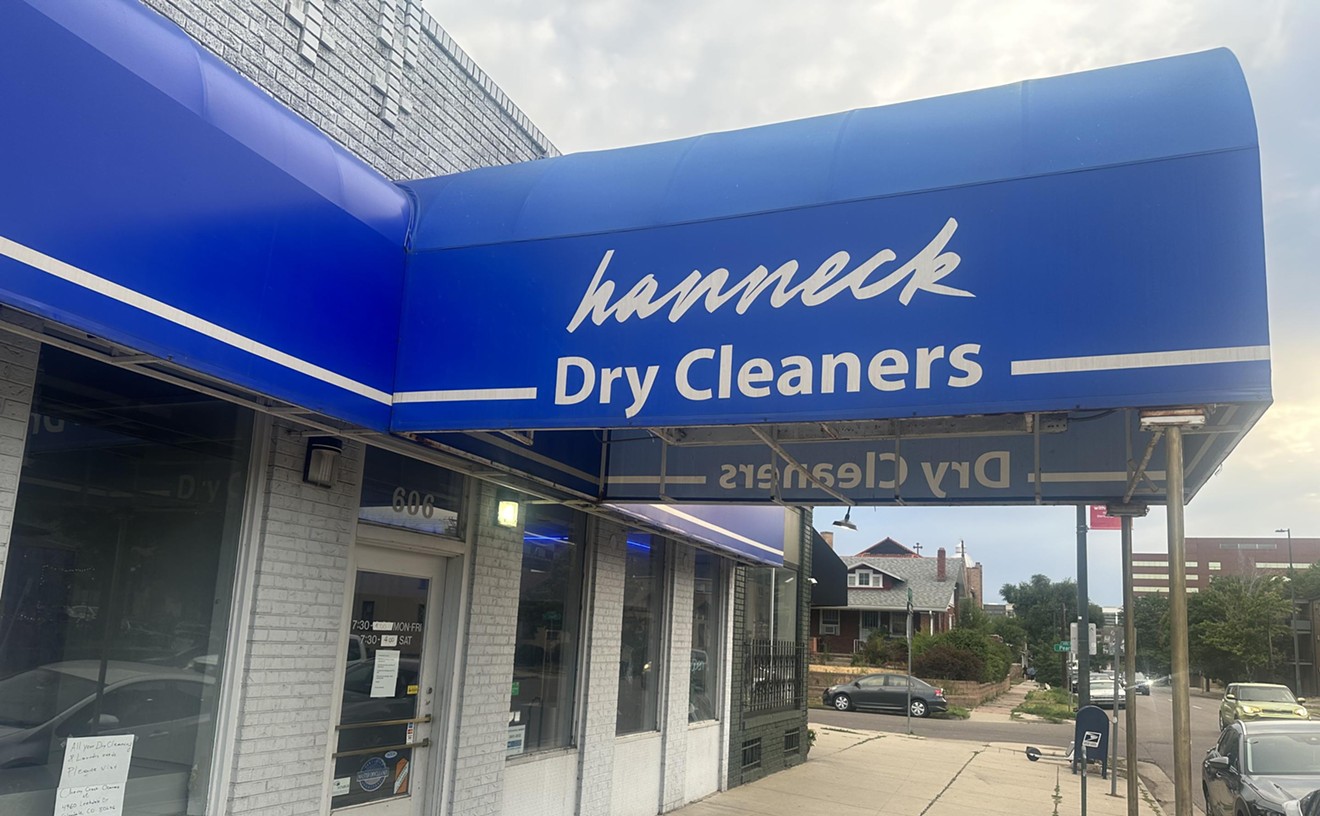On December 7, one day after they filed their lawsuit, the Aronsons held a press conference. Later that day, the sheriff's department filed criminal charges against the Quigleys that were virtually identical to those in the civil suit. The following day, the Quigleys' lawyer held a press conference for his clients to respond.
Since then, attorneys for both sides say, the federal judge presiding over the case has told them not to discuss it publicly. So for the past three weeks there has been an unsatisfying halt in the flow of information about the dispute--particularly in light of the havoc its initial publicity caused--and some puzzling gaps in nearly every aspect of the case.
For example, William Quigley, a former movie-studio executive, has been branded as someone who hates Jews. Yet he has led a very public life, much of it surrounded by Jewish colleagues, with no known evidence of anti-Semitism before this.
And what about the Aronsons? Both families had played out a game of complaint and counter-complaint in Jefferson County's regulatory offices long before the lawsuit. Sources say the dispute may have all started with the families' kids and that the Aronsons are hardly blameless.
There are even unanswered questions about the lawsuit and the subsequent criminal charges filed against the Quigleys. Where, for example, did the Aronsons get the idea--not to mention the time and the energy--to audiotape nearly two weeks' worth of the Quigleys' phone conversations? What else did they hear? Why did they file a civil lawsuit when an investigation of duplicate criminal charges was pending?
Finally, on the sheriff's side, an even more specific question: Why did the district attorney decide to bring charges against the Quigleys despite a glaring gap in the sheriff's department's investigation?
The Quigleys
William Quigley's career path, by his choice, frequently has propelled him into the public spotlight. So his life is not difficult to trace.
His family is from Larchmont, a ritzy New York suburb. The family published a Neilsen-like ratings service for movies that surveyed movie theaters and calculated ticket sales. In 1973 William graduated from Connecticut's Wesleyan University, taught for a year in Kenya and later worked for Walter Reade Theaters, which runs several movie houses in New York, including the Ziegfeld in Manhattan.
In 1986 he moved on to Vestron Pictures, a new, independent movie studio, arriving at what appears to have been a very heady time. The studio's first production, Dirty Dancing, was a surprise hit. Unfortunately, a string of failures--some of them co-produced by Quigley--led to the studio's demise three years later.
Many of Quigley's early associates are Jewish; many went on to become incredibly successful. Says one of those executives, who requested anonymity, "It's almost frightening how well we did."
Vestron's treasurer, Sheldon Rabinowitz, is now vice president of finance at Sony Pictures in California. Vestron executive vice president Stephen Einhorn is now president of New Line Home Video. Strauss Zelnick, Vestron's president, moved to the 20th Century Fox studio. At the beginning of this year he was hired to head BMG Publishing, which owns, among other things, the Arista and RCA record labels. Quigley, meanwhile, went to work for a bowling company.
None of the people who worked with Quigley would speak for attribution. Commenting candidly, however, they agree that he was quick-tempered, possibly bitter over his former colleagues' success and his relative failure in the movie business--and that he was not prejudiced against Jews.
"I worked with Bill. At times I was contentious with him," recalls one executive who is Jewish. "But nothing of a biased or prejudiced nature ever came out--and I was in some pretty heated situations with him."
Adds another Jewish executive who worked closely with Quigley: "Most of the people who worked for Bill were Jewish, and I think anti-Semitism is hard to hide. And it never once came out."
But, the executive continues, "Bill's kind of a bitter guy. He failed miserably at Vestron. He was way out of his depth. He was just the kind of guy to blame it on someone else."
Quigley, who is now 43 years old, was hired two years ago by United Artists as vice president in charge of marketing and new business. He arrived in Evergreen in 1993, moving into the first home built in the Ridge, the high-rent subdivision (homes sell for upwards of $500,000) that was soon to become the site of a low-rent neighborhood squabble.
The Aronsons
Unlike Quigley, much less is known about Mitchell and Candice Aronson. Mitchell is 39 and Candice is 42. Department of Motor Vehicles records show that Mitchell lived in New York, New Jersey and Florida. At the December 7 press conference, he said he was a graphic artist. Some Evergreen residents who have come into contact with the family say he made money in computers.
New York State corporation records show two businesses listed under Aronson's name. A spokeswoman for the corporations division says that both Four State Press, Inc., and Citation Graphics were dissolved in 1992, after Aronson didn't pay franchise taxes on them three years in a row.
According to Florida motor vehicles records, the Aronsons owned a condominium in a country-club setting in Boca Raton called Sabal Lake. In 1990, according to court documents filed there, the condominium association foreclosed on the Aronsons for failing to pay their dues, which currently are $1,000 every three months. (The court file says the case was "dismissed voluntarily." The attorney representing the condominium association couldn't recall details of how the case was resolved; a representative of the association declined comment.)
The family moved to Evergreen last August. Apparently, they did not get along with the Quigleys from the beginning.
The Dispute
Considering the harm done to both families, it is remarkable the conflict had such trivial beginnings. Two sources who asked that their names not appear said they suspect the dispute began with the families' children, who are close in age.
Both cite one incident as particularly divisive. Sometime last fall, they say, the Aronsons lent a car to one of their children's friends, who took it on a high-speed joyride through the neighborhood. The Quigleys complained, which apparently resulted in an early confrontation with the Aronsons. These sources also recall the Aronson children skateboarding near the Quigleys' house, although details are lacking.
A sheriff's deputy report filed in mid-October following an interview with Dee Quigley references other early clashes. "The Quigleys advised that there is an ongoing dispute between them and the Aronsons" that included "name-calling, profanities, etc.," the report reads.
The Quigleys have charged that the Aronsons "embarked upon efforts to lobby the DA's office and the sheriff's office to adopt the Aronsons' position in this dispute and to harness the power of the state on the Aronsons' side." But records show neither family was reluctant to play out their differences through public offices.
The first time Jefferson County officials got involved in the dispute was October 4. On that day Dee Quigley called the county Animal Control office to complain that the Aronsons' Labrador was running loose on their--the Quigleys'--property. The county sent a warning notice to the Aronsons.
A week later the Quigleys complained to Animal Control again. This time the county issued a summons to Candice Aronson after Dee Quigley agreed to appear in court to testify. (The case was dismissed on December 12 when investigators concluded the Quigleys had lured the Aronsons' dog onto their property.)
The next complaint came from the Aronsons and was filed on October 20. That's when Candice Aronson called the sheriff's department to say she'd been threatened by William Quigley in his automobile.
According to the complaint, Aronson was sitting in her car on the street in front of her house reading a letter when she looked up to see Quigley heading directly toward her in a blue Suburban. "She states that he gunned his motor, sped up directly at her, then swerved around her at the last minute," the complaint states.
The sheriff's investigation was dropped, however, when the deputy concluded that Quigley was driving a red BMW that morning. "Based on the statements of all involved, the misidentification of the vehicle involved and the layout of this private road, no traffic violations can be substantiated, no further action will be taken," he wrote on the bottom of his report.
(Saul Rosenthal, director of the Anti-Defamation League, says the Aronsons contacted him later the same day to ask for advice. He adds that the family already had begun taping the Quigleys' phone calls. Rosenthal referred the Aronsons, whom he recalls as being "very, very frightened, very scared," to Gary Lozow, an attorney who has served as chair of the ADL and who does pro bono legal work for the organization. They met the following day.)
On October 29 the sheriff's department received another complaint, this time from Dee Quigley. She was having landscaping work done, and she reported that some of the rocks had been stolen from her yard and had ended up in the Aronsons' yard.
The deputy confronted Mitchell Aronson, who produced a receipt showing that he'd just purchased one-third of a ton of rock from a local nursery the day before. "No further action taken," the report concludes. (One close source, however, disagrees, contending that the Aronsons did swipe the rocks.)
On November 15 it was the Aronsons' turn again. Jefferson County records show that on that day, Mitchell Aronson called Animal Control to complain about a marauding, mixed-breed golden retriever, owned by the Quigleys, running loose on his property.
By this time the Aronsons had already taped two weeks' worth of the Quigleys' phone conversations. So it is not surprising that when the county inspector arrived to check out the complaint, the Aronsons presented him with a videotape of the Quigleys' loose dog as evidence. The county issued a warning notice to the Quigleys on November 16.
Mitchell and Candice Aronson filed their lawsuit against William and Dee Quigley three weeks later. Quigley, whose job with United Artists is in public relations, retained a Jewish attorney, Jay Horowitz.
Since then, both sides have continued the pattern of fighting their dispute through others. The Aronsons held a press conference with the Anti-Defamation League the day after the suit was filed (their attorneys have said it was in response to a phone inquiry from a newspaper reporter); and the Quigleys responded with their own press conference. (Westword received a copy of the lawsuit the day it was filed.)
Warned off by the lawsuit, none of the Quigleys' and Aronsons' neighbors in the Ridge are talking, and it is difficult to sort out the motives and personalities behind the incidents. Last month a building contractor told the Rocky Mountain News he heard Dee Quigley use ethnic slurs when referring to some of his Hispanic workers. Another local worker told Westword that Candice Aronson was, in his opinion, haughty, arrogant and shrill.
The Tapes
According to statements made by their attorneys and the sheriff's department, the Aronsons discovered by accident that they could overhear the Quigleys' cordless phone conversations on a scanner in their house. Once they began hearing the hateful content, they added, it was only natural that they would want to begin taping their neighbors' words.
Mitchell and Candice Aronson spent a lot of time tied to the scanner. The first taped conversation referenced in the lawsuit occurred, coincidentally or not, the same day William Quigley allegedly aimed his car at Candice Aronson, October 20. The last tape was made on November 1, twelve days later.
The tapes include much conversation that is innocent. "When I say monitoring and recording," Horowitz pointed out in a court hearing, "I mean everything: conversations between the Quigleys' kid and his grandmother, conversations between husband and wife concerning private matters..."
By the time the Aronsons turned the tapes over to Jefferson County sheriff's deputies, the Quigleys' conversations filled twelve tapes. It is unclear whether the Aronsons taped any other neighbors' phone conversations.
The immediate impact of the tapes was to revive the sheriff's department's interest in the alleged car harassment incident. That's because, according to the transcripts, William Quigley, in effect, admits doing it.
"I wanted...I almost...I thought about stopping...and, you know, pulling open the door and throwing her on the ground," he is quoted in the lawsuit as telling his wife. He continues, "Well, I think she was shocked at how I reacted, because I didn't think, I didn't hesitate. I just, vroom...you know, and plowed through."
The sheriff's department received the tapes on November 17. Jim Parr, a spokesman, says that after listening to them, investigators revisited the back-and-forth complaints between the families. They concluded they had a case against Quigley after all. On December 7, the same day the Aronsons held their press conference, the Jeffco District Attorney's office charged William Quigley with felony menacing in connection with the car incident. Both Quigleys also were charged with ethnic intimidation.
Despite Quigley's "confession," at least one discrepancy lingers. When Candice Aronson filed her report, she observed that Quigley was driving his Chevy Suburban. Yet when the deputy questioned Dee Quigley--and before he explained why--she told him her husband was driving his BMW. She could have been lying, as her husband appears to have been when he told the deputy he "crept" by Candice Aronson in his car, then later--in his private phone conversation--boasted about driving at her.
Still, in a taped telephone conversation referenced in the lawsuit, when Dee Quigley had no reason to suspect her words were being monitored, she told someone identified as Kevin that "Bill was aiming for her. While she's sitting in her Jeep, he is aiming for [her] in his little BMW."
Sheriff's spokesman Parr says he can't explain the discrepancy, but he does say that the department wouldn't have sought charges against Quigley if it didn't have all the evidence it needed.
The rest of the tapes have been even more damning to the Quigleys, and their substance is well known by now. The Quigleys are allegedly heard discussing dousing one of the Aronsons' children with a flammable liquid, taping an oven door on the side of their house and throwing some bars of soap and a lamp shade around the front. They also allegedly describe Candice Aronson as "a fucking New York Jew" and discuss a plan called "Operation Aronson."
Although it is too early to predict the Quigleys' defense, there apparently is no getting around that they said what they said. Recently, however, the Quigleys won a quiet mini-victory of sorts.
As of October 25, it is a criminal offense in Colorado to listen in on cordless-phone conversations. That meant the Aronsons had to either concede that they broke the law every time they monitored the Quigleys' conversations after that date or withdraw as evidence any taped conversations recorded after October 24.
They chose the latter. The Aronsons' amended complaint, filed on December 20, doesn't refer to tapes made after October 24. As a result, several prejudicial comments allegedly made by the Quigleys--including Dee Quigley's references to wanting to shoot or dynamite the Aronsons and a conversation in which Dee Quigley accuses Candice Aronson of conducting an affair with a sixteen-year-old neighbor--have been deleted.
The Law
To anyone who has watched 1950s sitcoms or movies in which women hang over the back fence trading catty gossip about their neighbors, the Quigleys' taped phone conversations--which mostly seem to be idle homebodies' discussions of their neighbors during the day--are familiar, if distressingly hateful. The difference, of course, is that this time someone was listening.
Brian Terrett, a spokesman for the Jefferson County District Attorney, agrees that charging the Quigleys with ethnic intimidation against the Aronsons--based on private conversations the Aronsons were not meant to hear--is tricky. But he points out that there is a difference between a conversation and a conspiracy, which the Quigleys' alleged plan to rid the neighborhood of the Aronsons seems to have been.
Still, that misses a big point: If it were the police who had wanted to catch the Quigleys plotting a conspiracy, they would have had to ask a judge for a warrant. As private citizens, the Aronsons are relieved of that legal burden. (If it were a police officer who suggested they tape the conversations, however, a warrant would be required and the Aronsons' tapes probably would not stand as evidence, the DA's Terrett says.)
Whether the Aronsons' tapes will be accepted as evidence will be decided as the case winds its way through federal district court. In the meantime, the Quigleys have fired back. In a December 29 court filing, Horowitz announced his intention to challenge the constitutionality of the state's ethnic-intimidation statute under which William and Dee Quigley and a neighbor, Joy Mudd, have been charged.
Colorado's ethnic-intimidation law has been around since 1988, when it was passed in the wake of the murder of Alan Berg, a Jewish radio talk-show host. Tim Tymkovich, Colorado's solicitor general, says 35 other states have similar laws.
Two hate-crime laws have been challenged in state supreme courts. The first, in Minnesota, was struck down in 1992 because it proscribed specific actions the court held as expressions of free speech--cross-burning, for instance. The second, in Wisconsin, was upheld unanimously in 1993.
Tymkovich explains that such laws are meant to enhance other criminal charges. A person charged with intimidation based on his victim's race, for example, faces a stiffer penalty than someone who harassed a victim indiscriminately.
That means the Aronsons must prove first that the Quigleys did something--or at least were seriously planning to do something, i.e., a conspiracy--and were not just blowing off steam. Then they must prove they did it because the Aronsons are Jewish and because the Quigleys hate Jews.
A hearing on the criminal charges against the Quigleys is scheduled for January 20.










